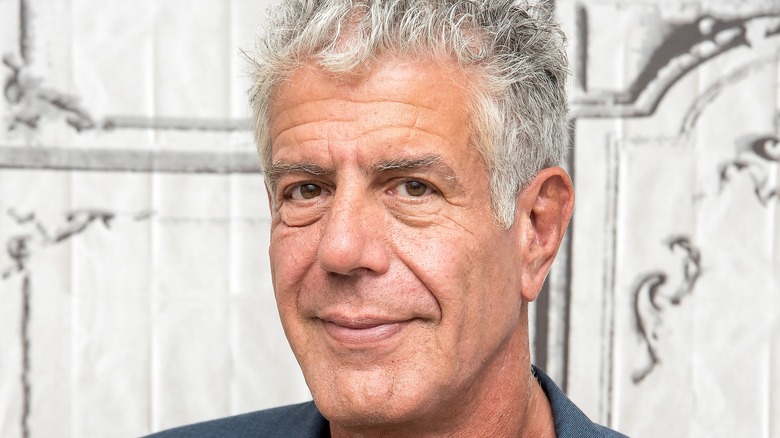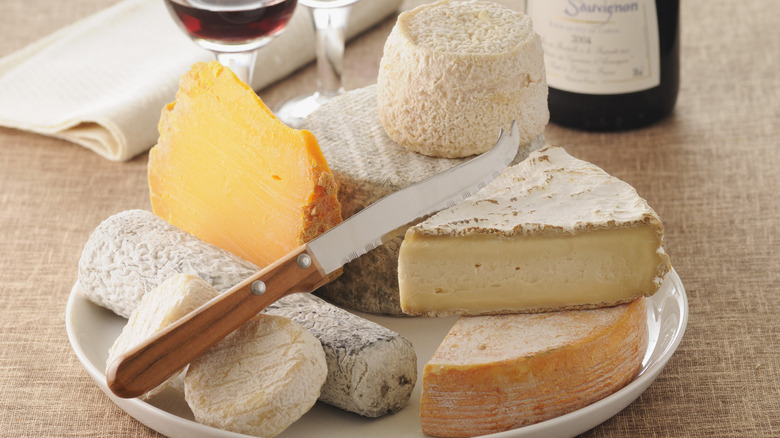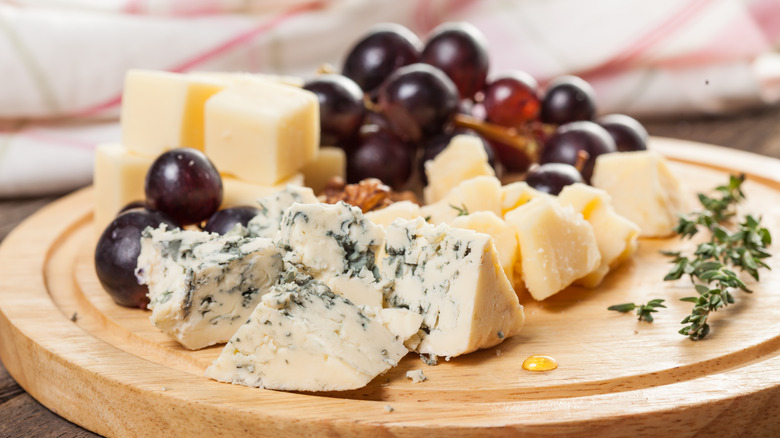The Course Anthony Bourdain Always Wanted To Skip
In the age-old opposition between sweet and savory lovers, the sweet tooths had a formidable opponent in Anthony Bourdain. The renowned chef, author, and television star admitted that he didn't care for dessert in a press interview for his cookbook, "Appetites." He added that his inability to bake well or make good pastries might have contributed to his distaste (per Publishers Weekly). He even described a career-long suspicion of pastry chefs in said cookbook resulting from his inability to properly bake good patisserie.
However, if Anthony Bourdain was going to have dessert, he said he would go for an old-fashioned crème caramel — a dessert much like flan — like his mom used to make, or maybe a little piece of good chocolate (via Thrillist). Nothing extravagant, and certainly nothing he would miss if he never had it again.
Rather than dessert, his preferred closing course for a meal was "some good port wine and some really stinky, runny cheese," Bourdain said in his interview with Publisher's Weekly. In fact, the "Appetites" cookbook dessert section is made up of a single page that counsels readers to ditch traditional desserts and serve a cheese course instead.
Why Anthony Bourdain preferred a cheese course
The preference for cheese over sweets at the end of a meal speaks strongly of Anthony Bourdain's French influences. In addition to his French ancestry on his paternal side, France was the country that initially sparked Bourdain's interest in food on a trip as a young boy. In fact, it was eating a simple oyster with his family that really began his journey in cuisine.
And what is more French than cheese? The cheese course is one of France's most notable traditional foods. A selection of cheeses is served at room temperature allowing the fat to warm, the molecules to relax, the scent to bloom, and the full flavor to be released. The French see this part of dinner as a way to encourage further and deeper conversation and, of course, a chance for another bottle of wine. It's an opportunity to pay homage to the many regions of France, each with its own stories and specialty cheeses.
In "Appetites," Bourdain sang the praises of Stilton cheese specifically (which he called the "king of cheeses"), adding that "all the knowledge accumulated by mankind and all the mysterious forces of the natural world reside in cheese." Now that was a man with a high opinion of cheese.
How to create a great cheese course
When serving your own cheese course, it's best to include a variety of textures and flavors. You want to have plenty of cheese so that everyone has enough to taste. For example, three to five cheeses should be sufficient for a party of six people.
If you want to include the "stinky, runny" cheeses that Anthony Bourdain favored, consider an Époisses, a pungent soft cheese from Burgundy. Can't find any? Limburger is more readily available in the U.S. and is also known for its creaminess and pungency. Stilton is another one with bold flavor — an English with a firm texture in the blue cheese family.
For cheese that still packs a flavor punch but with a little less funk, try a nutty, Spanish Manchego or a Basque Ossau-Iraty, which is considered one of Europe's oldest cheeses. For mild, creamy cheeses, try a Saint Marcellin from the Rhône-Alpes or a tangy chèvre (aka goat cheese). Check out a local specialty cheese shop for a wider selection and to be able to ask the cheesemonger for their expert advice.
A few good pairings can play a key role in enhancing the cheese. A high-quality rustic bread is traditional. Honey, fresh fruit, or jam provide the perfect touch of sweetness to balance the savory components. And of course, as Anthony Bourdain advocates, a glass of port or wine is essential. When in doubt, a dry rosé is a fail-proof option for cheese pairings.



